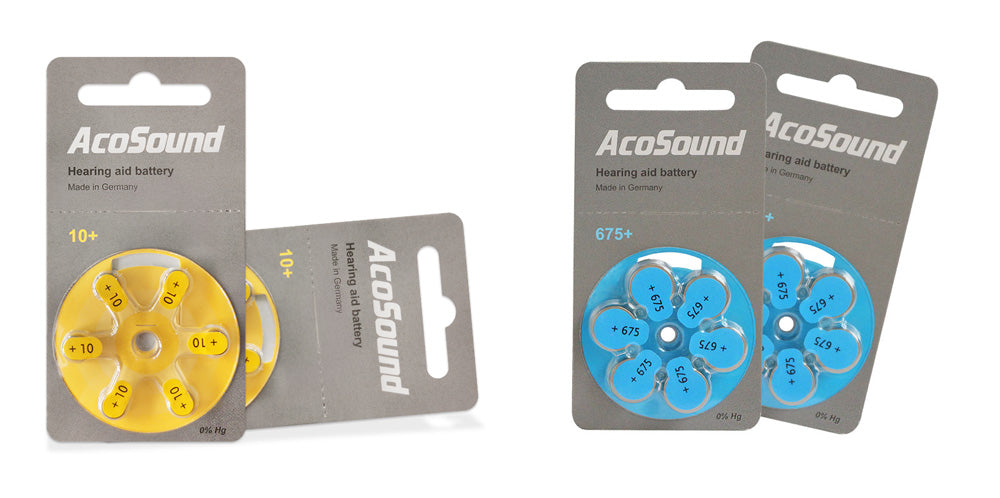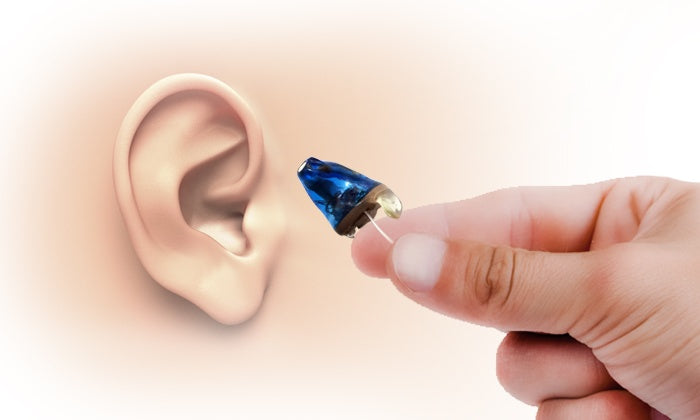If you are looking to buy a new pair of hearing aids, it is important to consider the battery life and buy your best hearing aid batteries. If this is your first time hearing aids, then you might be asking the following questions. You will want to make sure you don't have to replace those batteries too often. You have to think about the cost of replacing batteries.
There are generally two types of hearing aid batteries available: rechargeable and zinc-air disposable batteries.
Zinc-air disposable batteries
Zinc-air replaceable batteries are made by using air energy source and activated by oxygen when the tab is removed. Zinc-air disposable batteries are available in four sizes. They work with many types of hearing aids.

Rechargeable batteries
Rechargeable hearing aid batteries, which are usually lithium-ion batteries, must be charged for at least three to four hours each time. Rechargeable hearing aid batteries can be reused, which is more eco-friendly than disposable batteries. Rechargeable batteries have their drawbacks. For example, the user may not be able to use the hearing aid while it recharges and you will need to bring a charger with you when you travel.
Rechargeable hearing aid batteries are not available for standard hearing aids. Do not toss your old button cells in the trash. You can take them to your Audiologist .
Which hearing aid battery sizes should I get
No matter whether the hearing aids run on rechargeable or standard batteries, they are getting smaller and more powerful. The old packaging is a good option if you aren't sure what size battery you need. There are four sizes of hearing aid batteries: 10, 13 and 312, as well as 675. The additional codes such as A, PR and S, ZD or ZA are not to be confused. You can find the size on the back of the package, highlighted in the appropriate color. There are many sizes and heights of batteries. This table gives you the information that you require.
① Size 675 battery, which is the largest type of zinc-air battery. It is usually used for behind-the-ear medium and super-power hearing aids. Due to its relatively largest volume, this type of battery can store the most energy, and it is usually used for about 20-30 days;
② Size 13 batteries, usually suitable for behind-the-ear and in-the-ear hearing aids, usually for about 15 days;
③ Size 312 battery, usually suitable for canal type hearing aids and behind-the-ear RIC batteries, thinner than A13 batteries, usually lasts about 7 days;
④ Size 10 batteries, usually suitable for some behind-the-ear RIC machines and invisible hearing aid batteries, usually for about 5 days.

Note: The above usage time is calculated by wearing 8 hours a day. For example, the longer the wearing time per day, or the heavier the hearing loss, the shorter the battery usage days. Let's continue discussing more.
How long can hearing aid batteries last?
The life expectancy of hearing aid batteries is between 4 and 10 days. Smaller hearing aid batteries can last for 60 hours on average, while large hearing aid batteries can last up to 154 hours. The average hearing aid battery lasts 73 hours.
Although rechargeable hearing aid batteries are not covered here, they typically last for a full day (18-30hrs). However, some users complain about hearing aids running low on batteries during the day, particularly if they depend heavily on wireless audio streaming.
It is not easy to estimate your battery life. After battery current drain has been measured, hearing aids can be placed in "test mode" which disables advanced processing technologies like feedback cancellation and digital sound reduction. In test mode, wireless connectivity is also disabled.
How can I store my hearing aid batteries?
Batteries should not be stored in the fridge or in direct sunlight. They should be kept at room temperature between 10 and 25 degrees Celsius. Keep them at room temperature, between 10 and 25 degrees C.
Make sure your Auditory Device matches the quality of your Batteries
AcoSound Audiology offers a wide variety of auditory aids. We can guarantee that we have one that suits your needs and your budget. Call us today to schedule an initial consultation and let us restore your hearing so you can hear all the sounds around you again.

